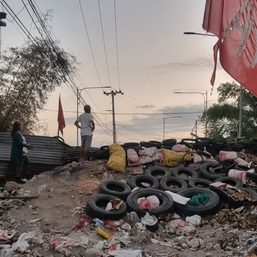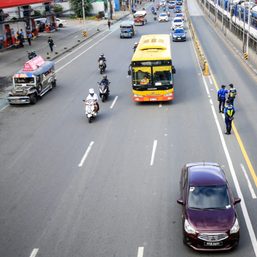SUMMARY
This is AI generated summarization, which may have errors. For context, always refer to the full article.

The government should spend more to help people weather the coronavirus pandemic, and better compensate medical workers risking their lives on the frontlines, senators said on Thursday, July 30.
This, even if it means borrowing more money, said Senate Minority Leader Franklin Drilon.
“We are in a crisis. Borrowing is not a crime as long as we spend the money for the people – to feed the 5.2 million Filipino households who are hungry, provide jobs to 5 million Filipinos, and give assistance to distressed businesses,” Drilon said in a statement.
The government needs more funds to buy more personal protective equipment (PPE), laboratory and medical supplies, to increase hospital capacities for COVID-19, and give additional benefits to healthcare frontliners, he added.
“The government, however, must observe complete transparency and accountability. The government needs to account for each centavo it spent for COVID-19,” Drilon said. (READ: National gov’t stops requiring PCR tests for locally stranded individuals)
The Asian Development Bank ranks the Philippines’ COVID-19 response packages as the 4th lowest in Southeast Asia in terms in proportion to gross domestic product (GDP), Drilon noted. It’s 6% of GDP for the Philippines, compared to Indonesia’s 18%, Malaysia’s 22%, and Thailand’s 16%.
To be able to spend more, the government can either borrow more money or impose new taxes. But imposing new taxes would only add to people’s problems, Drilon said, so to borrow more is the better option.
“As long as it is able to properly spend and account for it, the government should not worry about breaching the 40 percent debt-to-GDP ratio, which is ideal for developing countries like ours. Today isn’t the time for austerity,” the opposition senator added.
A raise for all healthcare workers?
Senate President Pro Tempore Ralph Recto on Thursday also called on the government to give public medical workers a raise, and regular employment to those on short-term contracts.
“Mayroon bang [military] special forces na ‘job order’ o [police] SWAT (special weapons and tactics) na casual na isinabak natin sa giyera?” Recto said in a statement. “Job order” refers short-term contracts the government signs with casual workers.
(Are there military special forces on job order or casually hired police SWAT that we send to war?)
“But in the battle of our lives, brave ones with no job security are in the front protecting us and saving lives,” Recto added.
Most nurses are in salary grade 15 of the government’s standard pay scale. Depending on their rank or “salary step,” they earn P32,053 to P34,801 a month.
Many government employees, including those in hospitals run by the Department of Health, have been “marooned” in their salary step for a long time, Recto explained.
“Pandemic or not, they deserve to be bumped up the pay scale. The existing inter-agency government rules call for step increases for meritorious service rendered,” he said.
“What can be more meritorious than healthcare personnel walking to hospitals, working straight 12-hour shifts without bathroom breaks because they are only allotted one PPE set per day, inside which they are soaked in their own sweat?” Recto added. (READ: Frontliners: May kasal pa ako, Lord!)
The senator urged the government to “mass promote” all frontliners to the next rank, “or even two salary grades higher,” and those casually hired to be “regularized,” even if it means waiving academic qualifications for non-medical staff.
Recto also called for the immediate release of frontliners’ hazard pay.
As of July 28, at least 4,691 healthcare workers have contracted “respiratory distress,” Recto said. On average, one healthcare worker falls ill every 20 minutes as they respond to the pandemic.
So far, the government has only given special compensation to healthcare workers who have gotten seriously ill or died of COVID-19 – P100,000 to the sick, and P1,000,000 to the families of those who succumbed to the virus. – Rappler.com
Add a comment
How does this make you feel?


![[In This Economy] Can the PH become an upper-middle income country within this lifetime?](https://www.rappler.com/tachyon/2024/04/tl-ph-upper-income-country-04052024.jpg?resize=257%2C257&crop=295px%2C0px%2C720px%2C720px)







There are no comments yet. Add your comment to start the conversation.